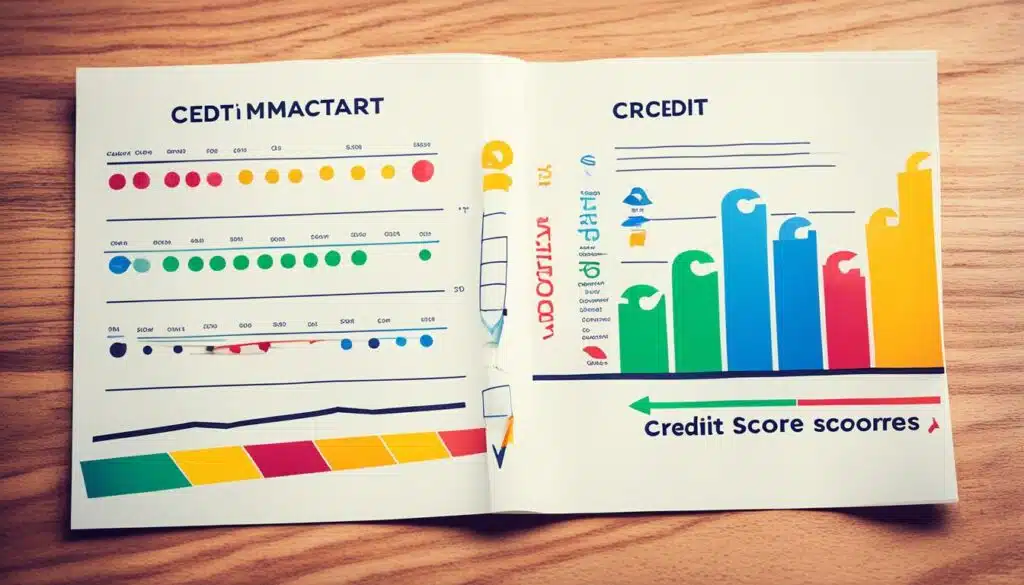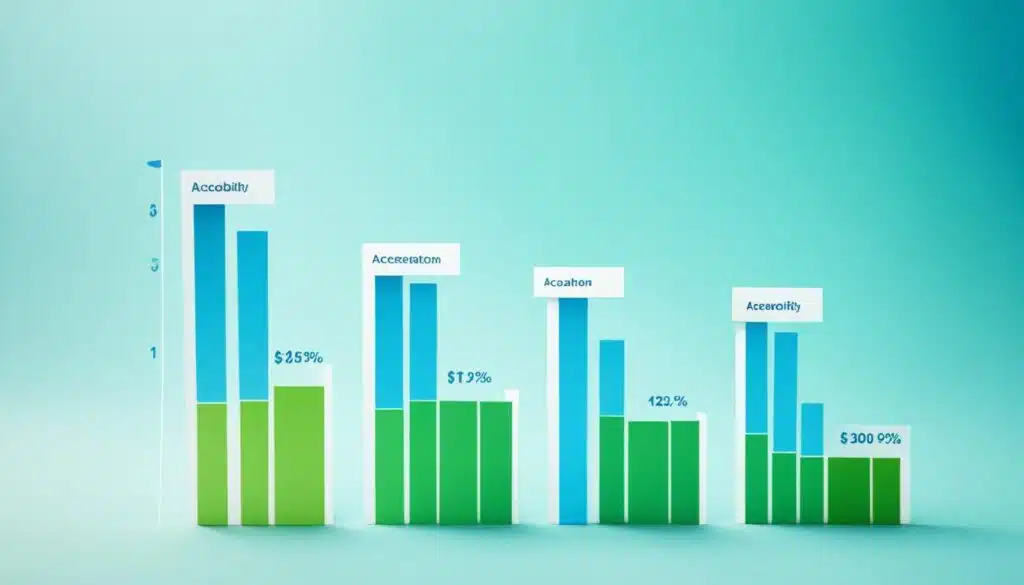Welcome to our comprehensive guide on navigating the car loan process successfully. Whether you’re dreaming of a new car or looking to finance a used one, understanding the ins and outs of car loans is essential to ensure you secure the best deal. In this guide, we’ll walk you through every step, from understanding the impact of your credit score to finding the perfect loan amount and negotiating favorable terms.
Before we dive into the nitty-gritty of car loans, let’s take a moment to understand what they are and how they work. A car loan is a type of financing that allows you to purchase a vehicle by borrowing money from a lender. The loan amount, interest rate, and repayment terms will vary based on factors such as your credit score and the type of car you’re financing – whether it’s new or used.
Key Takeaways:
- Understanding the car loan process is crucial for securing the best deal.
- Car loans involve borrowing money from a lender to purchase a vehicle.
- The loan amount, interest rate, and terms depend on factors like credit score and car type.
Understanding Car Loans and How They Work
Before diving into the car loan process, it’s important to understand the basics. In this section, we’ll explain what a car loan is, how it works, and the different types of loans available. You’ll also learn about the role of lenders and the factors that impact the interest rate, loan amount, and eligibility.
You can think of a car loan as a form of financing that allows you to purchase a vehicle without paying the full amount upfront. Instead, you borrow money from a lender and repay it over time, typically in monthly installments.
There are two main types of car loans: financing for new cars and financing for used cars. When you’re buying a new car, the lender may offer financing options directly from the dealership or through a third party. On the other hand, used car financing may involve different terms and interest rates, as the lender takes into consideration the age, mileage, and condition of the vehicle.
When you apply for a car loan, the lender will consider various factors to determine the loan amount and interest rate you qualify for. These factors may include your credit score, income, employment history, and debt-to-income ratio. A high credit score and stable income can positively impact your eligibility and help you secure more favorable loan terms.
Interest rates play a crucial role in the affordability of your car loan. They determine the amount of interest you’ll pay over the loan term. Different lenders may offer different interest rates, so it’s important to shop around and compare options to find the best rate for your financial situation.
“Understanding how car loans work will empower you to make informed decisions when it comes to financing your vehicle purchase.”
The Role of Lenders in Car Loans
Lenders are financial institutions or organizations that provide the funds for your car loan. They assess your financial situation and determine your eligibility for a loan. Lenders can be banks, credit unions, online lenders, or even the dealership itself.
When choosing a lender, it’s important to consider factors such as the interest rates they offer, loan terms, fees, and customer service. Online lenders may offer competitive rates and convenient application processes, while credit unions may provide lower interest rates for their members.
Before finalizing your car loan, it’s wise to review the loan agreement carefully, including the repayment terms, interest rate, and any additional fees or charges. Understanding the terms and conditions will help you avoid any surprises and ensure that you’re comfortable with the financial commitment.
Factors Impacting Loan Amount and Interest Rate
The loan amount you qualify for is influenced by several factors, such as your credit score, income, and debt-to-income ratio. A higher credit score and income may allow you to borrow a larger amount, while a lower credit score may result in a lower loan amount or higher interest rates.
The interest rate is the percentage of the loan amount that you’ll be charged as interest over the loan term. It is influenced by factors such as your credit score, the loan term, and market conditions. Higher credit scores generally result in lower interest rates, while longer loan terms tend to have higher interest rates.
Here’s a table summarizing the main factors that impact the loan amount and interest rate:
| Factors | Impact |
|---|---|
| Credit Score | Higher score = higher loan amount, lower interest rate |
| Income | Higher income = higher loan amount, lower interest rate |
| Loan Term | Longer term = higher interest rate |
Understanding the factors that impact the loan amount and interest rate will help you make informed decisions when applying for a car loan. It’s important to balance your financial situation and choose a loan that fits your budget and long-term goals.
Evaluating Your Credit Score and Credit History
Your credit score and credit history are essential factors that lenders consider when evaluating your car loan application. They play a crucial role in determining the terms and conditions of your loan, including the interest rate you’ll be offered. In this section, we’ll guide you through the process of understanding and evaluating your credit score and history, empowering you to improve your chances of loan approval and secure a favorable interest rate.
What is a Credit Score?
A credit score is a numerical representation of your creditworthiness. It is based on various factors, such as your payment history, the amount of debt you currently have, the length of your credit history, new credit applications, and the types of credit you use. The most commonly used credit scoring model is the FICO Score, which ranges from 300 to 850. The higher your credit score, the more favorable loan terms you can expect to receive.
Evaluating Your Credit Score
Start by obtaining a copy of your credit report from the major credit bureaus, such as Experian, Equifax, and TransUnion. Review the report carefully, checking for any errors or discrepancies that could negatively impact your score. Look for late payments, accounts in collections, or any other negative items. If you find any inaccuracies, dispute them with the credit bureau to have them corrected.
Next, assess your credit score based on the following ranges:
| Credit Score Range | Credit Rating |
|---|---|
| 300-579 | Poor |
| 580-669 | Fair |
| 670-739 | Good |
| 740-799 | Very Good |
| 800-850 | Excellent |
If your credit score falls in the fair or poor range, it’s important to take steps to improve it before applying for a car loan. We’ll provide tips for improving your credit score in the next section.
Understanding your Credit History
Your credit history consists of a detailed record of your past borrowing and repayment activities. It includes information about the types of credit you’ve had, the length of your credit accounts, and any late or missed payments. Lenders use this information to assess your creditworthiness and predict your ability to repay a loan.
Review your credit history to identify any negative marks, such as late payments or accounts in collections. Understand that lenders may view a clean and consistent credit history more favorably when considering your loan application. Taking steps to maintain a positive credit history can improve your chances of loan approval and secure a lower interest rate.

Now that you understand the importance of your credit score and credit history, you’re ready to take the next steps towards securing a car loan. In the next section, we’ll provide effective tips for improving your credit score before applying for financing, setting you up for loan approval and better interest rates.
Calculating Your Perfect Loan Amount and Affordability
To ensure that you can comfortably make your monthly payments, it is crucial to determine the right loan amount and assess your affordability. By considering factors such as your budget, interest rate, and loan term, you can find the perfect loan amount tailored to your needs.
Evaluating Your Budget
Start by assessing your budget to understand how much you can realistically afford to pay each month. Consider your income, expenses, and other financial obligations. By having a clear picture of your financial situation, you can determine a monthly payment that fits comfortably within your budget.
Understanding Interest Rates
The interest rate is a significant factor in calculating your loan amount. A lower interest rate means lower monthly payments and potentially a higher loan amount you can qualify for. Research and compare interest rates from different lenders to find the most favorable rates that align with your financial goals.
Factoring in Loan Term
The loan term, or the duration of the loan, also impacts your loan amount and monthly payments. A shorter loan term typically leads to higher monthly payments but results in lower overall interest costs. On the other hand, a longer loan term may reduce monthly payments but increase the total interest paid over time. Consider your financial goals and choose a loan term that suits your financial circumstances.
Differences in Financing Options for New and Used Cars
When calculating your loan amount, it’s essential to note the differences in financing options for new and used cars. Financing a new car may provide access to lower interest rates, longer loan terms, and higher loan amounts. However, used cars often have lower purchase prices, resulting in lower loan amounts and potentially shorter loan terms. Evaluate your preferences, the condition of the vehicle, and your financial circumstances to determine the best financing option for you.

“By carefully calculating your loan amount and considering your affordability, you can confidently make a decision that aligns with your financial goals and provides a smooth journey towards owning the car of your dreams.” – Financial Expert
Finding the Best Lender and Loan Options
Choosing the right lender can make a significant difference in securing the best loan terms and interest rates for your car loan. With numerous financing options available, it’s crucial to understand the different lenders and loan options to make an informed decision.
One of the primary considerations when selecting a lender is the interest rate they offer. The interest rate determines the additional amount you’ll pay on top of the loan principal. Look for lenders who provide competitive interest rates to ensure you’re getting the best deal possible.
When exploring loan options, consider the type of financing available. Banks, credit unions, and online lenders are among the common choices. Credit unions are particularly worth considering as they often offer lower interest rates and more flexible terms due to their member-focused approach. Research and compare loan options from various lenders to find the one that suits your needs.
Before you start contacting lenders, it’s beneficial to get pre-approved for a loan. Pre-approval not only helps you determine your budget but also strengthens your negotiating power. When you have pre-approval, lenders will view you as a serious buyer, giving you an advantage during negotiations.
Comparing Loan Options
When comparing loan options, there are several factors to consider:
- Interest rate: Look for lenders offering competitive rates to minimize the total cost of your loan.
- Loan term: Consider the length of the loan and its impact on your monthly payments. A longer term may result in lower monthly payments but could also increase the total interest paid.
- Loan fees: Some lenders charge origination fees or other fees that can affect the overall cost of the loan. Pay attention to these fees when comparing options.
- Customer reviews: Research online reviews to gauge the lender’s reputation and customer satisfaction. Positive reviews can provide peace of mind and confidence in your chosen lender.
To help you with your decision-making, here’s a comparison table showcasing some popular lenders and their key features:
| Lender | Interest Rate | Loan Term | Loan Fees | Customer Reviews |
|---|---|---|---|---|
| Bank of XYZ | 3.5% – 6% | 36 – 72 months | Origination fee: $200 | ★★★★☆ |
| Credit Union ABC | 2.75% – 5% | 12 – 84 months | No fees | ★★★★★ |
| Online Lender 123 | 4.25% – 7.5% | 24 – 60 months | Processing fee: $100 | ★★★☆☆ |
Remember, this table is just a starting point. As you research lenders, consider additional factors that may be relevant to your specific needs and financial situation.
Taking the time to find the best lender and loan options can save you money and provide a more favorable borrowing experience. By comparing interest rates, loan terms, fees, and customer reviews, you’ll be well-equipped to make an informed decision and secure the car loan that best meets your needs.

Applying for a Car Loan and the Approval Process
Applying for a car loan may seem like a complex process, but it doesn’t have to be overwhelming. In this section, we will guide you through the application process step by step, making it easier for you to navigate. We’ll also provide valuable insights on how to increase your chances of loan approval.
When applying for a car loan, it’s essential to have all the necessary documents and information ready. Lenders require certain documentation to verify your identity, income, and financial history. This includes:
- Proof of identification (such as a driver’s license or passport)
- Proof of income, such as pay stubs or bank statements
- Proof of residence, such as utility bills or a lease agreement
- Proof of insurance
- Vehicle information, including the vehicle identification number (VIN) and purchase agreement
It’s important to note that the specific requirements may vary depending on the lender and your individual circumstances. Be sure to check with your lender to ensure you have all the necessary documentation.
When lenders review your car loan application, they consider various factors to determine your eligibility and loan approval. One crucial factor is your credit score. Lenders use your credit score to assess your creditworthiness and gauge the risk of lending to you. A higher credit score usually improves your chances of loan approval and may even result in more favorable loan terms, such as a lower interest rate.
In addition to your credit score, lenders also consider other loan eligibility requirements, such as your debt-to-income ratio, employment history, and the loan-to-value ratio (LTV) of the vehicle you intend to purchase. They want to ensure that you have the financial capacity to repay the loan and that the loan amount does not exceed the value of the vehicle.
To increase your chances of loan approval, it’s important to maintain a good credit score, pay your bills on time, and minimize your existing debt. It’s also beneficial to save for a down payment, as it shows lenders that you are financially responsible and can reduce the overall loan amount.
Remember, lenders may have different approval criteria, so it’s a good idea to shop around and compare loan options from multiple lenders. This allows you to find the best financing terms and rates that suit your needs.
Expert Tip:
Before submitting your car loan application, consider getting pre-approved from different lenders. Pre-approval provides you with a clear understanding of your borrowing capacity and strengthens your negotiating power. It also allows you to compare offers and choose the best loan option.
Applying for a car loan doesn’t have to be a daunting task. By following the guidance provided in this section, you’ll be better prepared to navigate the application process, gather the necessary documents, and improve your chances of loan approval. Remember to do your research, compare loan options, and ultimately choose the best financing option that meets your needs and budget.

| Lender | Loan Approval Criteria | Interest Rate |
|---|---|---|
| Bank A | Minimum credit score of 650, stable employment history | 3.75% |
| Credit Union B | Minimum credit score of 600, proof of income | 4.25% |
| Online Lender C | No credit score requirement, high interest rate | 6.50% |
Negotiating Loan Terms and Interest Rates
Once you’ve been approved for a car loan, the next step is to secure the most favorable loan terms and interest rates. Negotiating with the lender will allow you to customize your loan to suit your specific needs and budget. Here are some strategies to help you navigate the negotiation process:
- Do your research: Before approaching the lender, research current interest rates and loan terms offered by different financial institutions. This will give you a benchmark to negotiate from and ensure you understand what competitive rates and terms look like.
- Highlight your creditworthiness: If you have a strong credit score, make sure to emphasize this during the negotiation process. Lenders are more likely to offer better terms to borrowers with a proven track record of responsible financial management.
- Consider loan term options: Loan terms can range from a few months to several years. Evaluate your financial situation and determine the loan term that aligns with your repayment capability. Shorter loan terms generally have lower interest rates, but higher monthly payments.
- Ask about lender charges: In addition to interest rates, inquire about any additional charges or fees associated with the loan. It’s important to understand the full cost of the loan so you can compare offers accurately.
Remember, negotiation is a two-way process. Be prepared to make compromises, but also advocate for terms that are fair and favorable to you. By comparing offers from multiple lenders and leveraging your creditworthiness, you can increase your chances of securing competitive rates and favorable loan terms.

Tips for Effective Negotiation:
1. Be confident and assertive in your negotiations, but also maintain a respectful and professional tone.
2. Prepare a budget and demonstrate how the proposed terms align with your financial goals and constraints.
3. If one lender offers more favorable terms, use this as leverage when negotiating with other lenders.
4. Consider seeking the assistance of a professional financial advisor who can provide guidance and support throughout the negotiation process.
By taking the time to negotiate loan terms and interest rates, you can potentially save money and ensure that your car loan is tailored to your individual circumstances. Remember, the goal is to secure a loan that offers competitive rates and a repayment plan that fits comfortably within your budget.
Refinancing and Lowering Your Car Payment
If you’re looking to lower your car payment or secure a better interest rate, refinancing may be an option. Refinancing involves replacing your current car loan with a new one from a different lender. This can help you take advantage of lower interest rates, adjust your loan term, or lower your monthly payment.
Before considering refinancing, it’s essential to assess your current financial situation and compare it to when you initially took out your car loan. Has your credit score improved? Have interest rates dropped since then? These factors can influence the potential benefits of refinancing.
When Does Refinancing Make Sense?
Refinancing your car loan can make sense in various scenarios:
- If interest rates have decreased: If interest rates have significantly dropped since you obtained your original loan, refinancing can help you secure a lower rate, potentially saving you money over the loan term.
- If your credit score has improved: If your credit score has gone up since you first applied for your car loan, you may qualify for a lower interest rate. Refinancing can help you leverage your improved credit standing and reduce your monthly payments.
- If you need to lower your monthly payment: Refinancing may allow you to extend your loan term, which can lower your monthly payment. However, keep in mind that extending your loan term may result in paying more interest over time.
Refinancing can be a strategic financial move, but it’s crucial to carefully analyze the terms and fees associated with refinancing. Ensure that the potential savings outweigh any costs involved in the process.
Calculating Potential Savings
Before proceeding with refinancing, it’s essential to calculate your potential savings. Factors to consider in this assessment include:
- Your current interest rate
- The remaining balance on your loan
- The new interest rate being offered
- The length of the new loan term
- Any fees associated with refinancing
By plugging these numbers into a car loan refinance calculator, you can determine the potential savings and assess whether refinancing is the right choice for you.
Remember, refinancing your car loan can offer financial benefits, but it’s essential to carefully consider your circumstances and the potential impact on your overall financial plan.
Navigating the Refinancing Process
Ready to explore refinancing options? Here’s an overview of the process:
- Evaluate your current loan: Review your current loan agreement to understand any prepayment penalties or fees that may be associated with refinancing.
- Research lenders: Compare different lenders to find the one that offers the most competitive rates and terms.
- Gather documentation: Prepare the documentation typically required for refinancing, such as proof of income, vehicle registration, and identification.
- Apply for refinancing: Submit your application to the chosen lender and await their decision.
- Review the offer: Carefully review the terms and conditions of the refinanced loan, paying attention to the interest rate, loan term, and any additional fees.
- Close the refinancing: If you’re satisfied with the terms offered, finalize the refinancing process by signing the necessary paperwork.
Keep in mind that the refinancing process can take time, so it’s important to remain patient and attentive throughout. As with any financial decision, conduct thorough research and consider consulting with a trusted financial advisor.
Also Read :- American Express Personal Loans For Easy Access To Cash
By refinancing your car loan, you have the opportunity to lower your monthly payments and potentially secure a better interest rate. However, carefully evaluate your circumstances, calculate potential savings, and navigate the refinancing process with caution. By doing so, you can make an informed decision that aligns with your long-term financial goals.
Conclusion
This comprehensive guide has equipped you with the knowledge and tools necessary to successfully navigate the car loan process and secure the best rates and terms for your new or used car. By understanding the impact of your credit score on loan approval and interest rates, you can take steps to improve it before applying for a loan. Calculating your ideal loan amount and considering affordability will help you make informed decisions that align with your budget.
Finding the right lender is crucial, and by exploring your options and comparing loan terms, you can ensure that you choose a reputable lender who offers competitive rates. Applying for a car loan doesn’t have to be overwhelming – armed with the necessary documents and information, you’ll be ready to tackle the application process with confidence.
Remember, thorough research and preparation are key to car loan success. By following the steps outlined in this guide, you’ll be well-equipped to secure the financing you need for your dream car, whether it’s brand new or gently used. Now it’s time to hit the road and enjoy the thrill of driving your new wheels!
FAQs
Q: How do I estimate my monthly car payment?
A: You can use an auto loan calculator to determine your estimated monthly car payment. Simply input the loan amount, interest rate, and term of the loan to get an estimate.
Q: Where can I find the best auto loan rates?
A: You can compare auto loan rates from top lenders like Bank of America, credit unions, and online lenders to find the best rate for your situation.
Q: What factors affect my auto loan rate?
A: Factors such as your credit score, the loan term, the type of car you’re buying, and the lender’s policies can all impact the interest rate you are offered.
Q: Can I get an auto loan for both new and used cars?
A: Yes, you can get an auto loan for both new and used cars. The terms and interest rates may vary depending on the age and condition of the car.
Q: How does getting an auto loan affect my credit score?
A: Applying for an auto loan can have a temporary impact on your credit score due to the hard inquiry that is made, but making timely payments on the loan can actually help improve your credit over time.
Q: What is the difference between an auto loan from a bank and a credit union?
A: Banks and credit unions both offer auto loans, but credit unions are typically member-owned and may offer lower interest rates and more personalized service compared to traditional banks.
Q: How can I shop for a car loan that fits my budget?
A: You can shop around for auto loans, compare rates and terms from different lenders, and use online tools like loan calculators to determine the best loan option for your budget.





